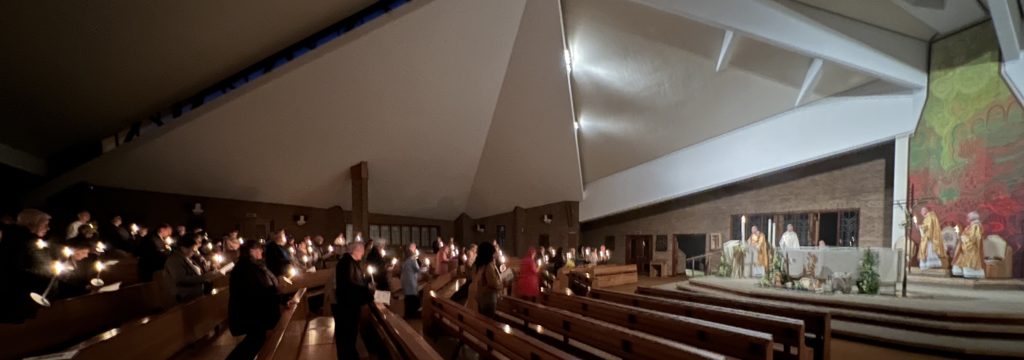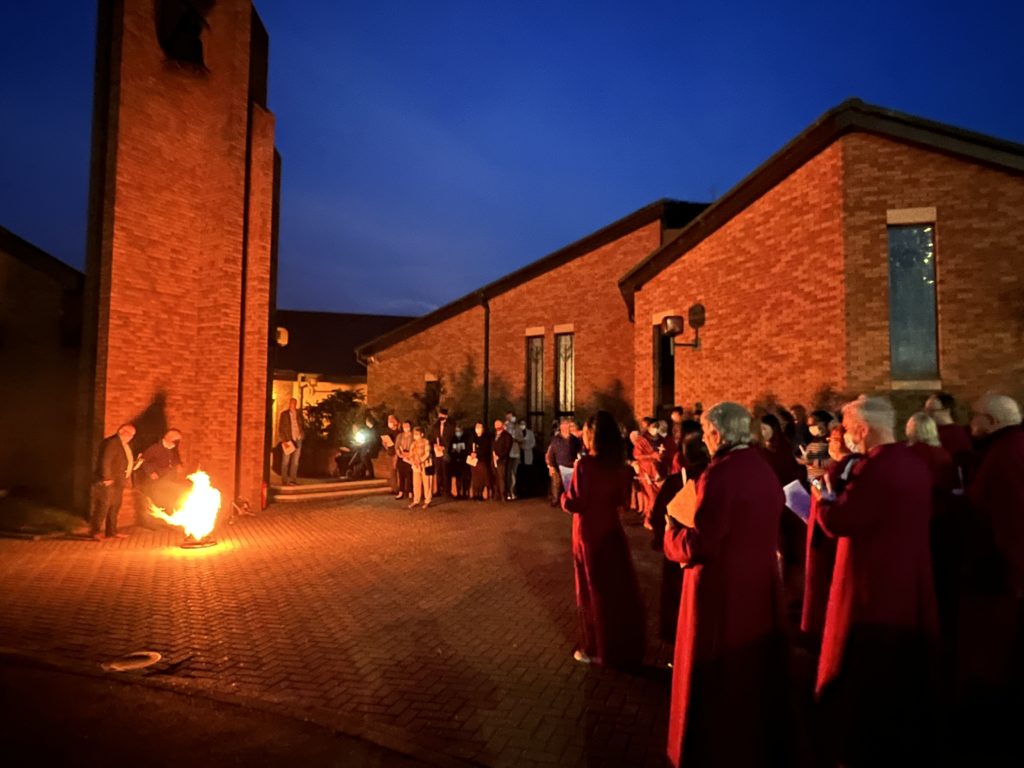
The Easter Vigil is such a special celebration, for many the favourite mass of the liturgical year, as we celebrate afresh the joy of the Resurrection of Our Lord. For some, though, there is a moment of great trepidation lurking in the familiar and beautiful liturgy: the Easter Proclamation, or Exsultet, traditionally sung by a deacon, but otherwise by a priest or a lay cantor. Even in the shorter form, it consists of four pages of plainsong, with almost six awaiting in the longer form.
This page seeks to assist those tasked with this solemn duty, such that it may even become something to enjoy rather than endure, and that it may provide that wonderful moment of exultation and joy for the deacon, priest, or lay cantor, as for all of those hearing the Proclamation. On this page, there are a number of links to resources, both prepared by and for our Diocese, and by others.
Our Diocesan Music YouTube channel includes a number of recordings:
The longer form of the Easter Proclamation
The shorter form of the Easter Proclamation
A brief “how to” video explaining the different tones used
As well as being printed in the Holy Week Missal and other Missals, the music is available to download online. The longer form may be downloaded by clicking here, and the shorter form by clicking here.
As noted, above, the Holy Week Missal rubrics state that the Easter Proclamation should be sung by a deacon. However, it goes on to say:
In the absence of a Deacon, [it may be sung by] the Priest himself or by another concelebrating Priest. If, however, because of necessity, a lay cantor sings the Proclamation, the words “Therefore, dearest friends” up to the end of the invitation are omitted, along with the greeting “The Lord be with you”.
Holy Week Missal (2010), paragraph 19
This applies to the longer form of the Proclamation. In the shorter form, only the greeting “The Lord be with you” needs to be omitted if being sung by a lay cantor. On the Diocesan videos, above, the sections to be omitted if sung by a lay cantor are shown on screen. As the videos are sung by a lay cantor, this is one of the reasons why they should not be used for purposes other than to assist with preparation, and certainly should not be used during the Vigil itself.
There is a very useful page on the Watershed site, which may be accessed by clicking here. It includes videos where you can follow the music alongside the singing, along with much background information. It should be noted that this page is not written specifically for the Church in England and Wales, hence care should be taken to ensure that the text is exactly correct for use in our churches.
As ever, our Diocesan Director of Music, Steven Maxson, will be only too happy to offer advice or guidance to any clergy or laity preparing to sing the Exsultet, as on any other matters relating to music in liturgy. Please email musicdept@rcdmidd.org.uk or follow the Diocesan Music Ministry social media page on Facebook, Instagram, Threads, X (formerly Twitter), and YouTube, using the handle @musicdiocese on each site.

